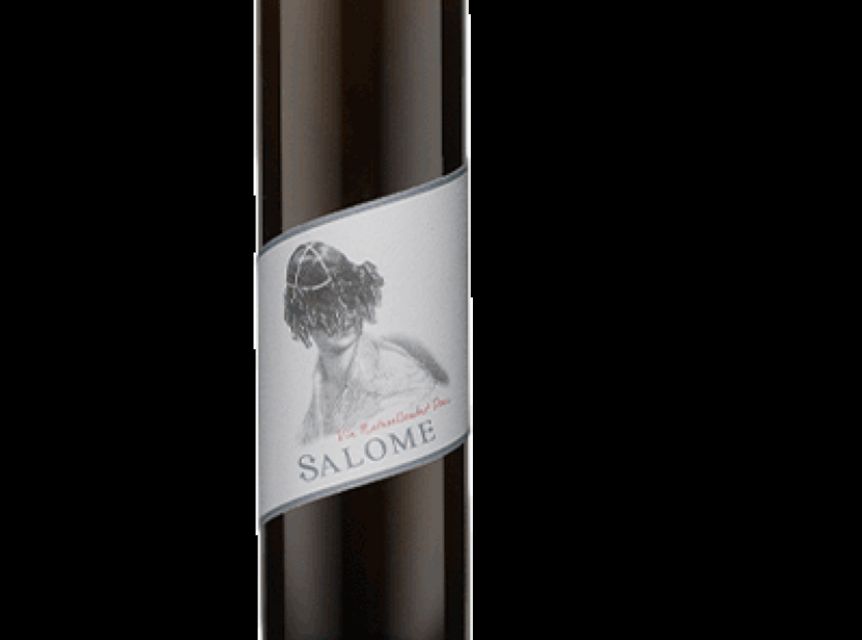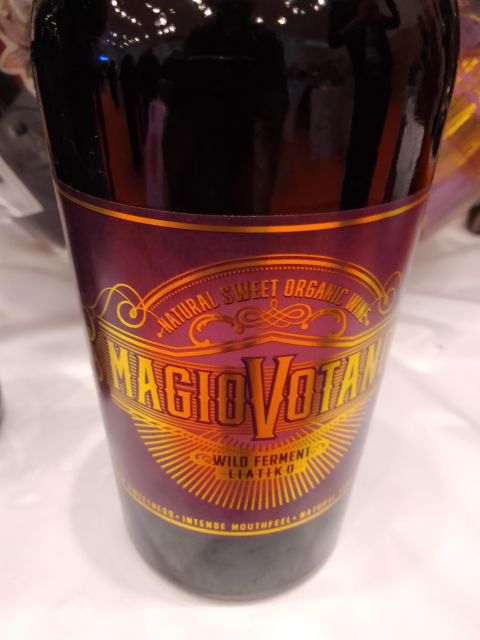Dessert Wines & Greece
Explore the hidden gems of Greece’s dessert wine world, where ancient traditions meet modern palates in a symphony of flavors. Journey through the sun-soaked vineyards of Crete, Santorini, and beyond, where each bottle tells a story of resilience and innovation. From the amber hues of Mavrodaphne to the honeyed nectar of Vinsanto, Greek dessert wines offer a tantalizing glimpse into a culture deeply intertwined with the art of winemaking. Prepare to embark on a sensory voyage that will awaken your taste buds and transport you to the heart of Greece’s vinicultural heritage.
Key Points
- Greek dessert wines blend tradition with innovation.
- Sun-dried grapes used in dessert wine production.
- Fortification techniques from Portugal, Spain, and Italy incorporated.
- Notable regions: Crete, Santorini, Patras, Lemnos, Samos.
- Sweet wine diversity: Vinsanto, Mavrodaphne, Muscat varieties.
Here's some more nearby activities we've reviewed
Greek Dessert Wines: An Overview

Greek dessert wines offer a delightful culmination of centuries-old tradition and modern innovation in the vibrant world of Greek winemaking. These wines, known for their luscious sweetness and complex flavors, have been a significant part of Greek culture since the Middle Ages.
Traditionally, dessert wines in Greece were crafted from sun-dried grapes, particularly in regions like Crete and Santorini, showcasing the country’s rich viticultural heritage. However, with the introduction of fortification techniques from countries like Portugal, Spain, and Italy in the past 170 years, Greek winemakers have expanded their repertoire to produce a diverse range of dessert wines.
Today, regions like Patras, Lemnos, and Samos are recognized for offering high-quality dessert wines that combine traditional methods with modern winemaking practices.
Traditional Sweet Wine Production

Throughout history, the art of crafting sweet wines has been deeply rooted in traditional winemaking practices across the Mediterranean region. In Greece, traditional sweet wine production dates back to ancient times, with methods passed down through generations. One of the most iconic techniques involves sun-drying grapes to concentrate their sugars before fermentation, resulting in rich and luscious dessert wines. Below is a table showcasing some traditional sweet wines from Greece, each offering a unique taste of the country’s winemaking heritage:
| Wine Name | Region | Grape Variety |
|---|---|---|
| Commandaria | Cyprus | Mavro & Xinisteri |
| Vinsanto | Santorini | Assyrtiko |
| Muscat of Patras | Patras | Muscat Blanc à Petits Grains |
| Mavrodaphne | Patras | Mavrodaphne |
Evolution of Dessert Wines in Greece
Over the centuries, the evolution of dessert wines in Greece has been characterized by a blend of traditional winemaking techniques and innovative influences from other renowned wine-producing regions.
Initially, sweet wines in Greece were crafted using sun-dried grapes, a practice dating back to the Middle Ages, particularly prevalent in regions like Crete and Santorini.
However, in the past 170 years, Greece has seen a significant shift towards adopting fortification techniques from countries such as Portugal, Spain, and Italy. This influx of new methods has led to the diversification of dessert wine production across the country.
Notably, regions like Patras, Lemnos, and Samos have emerged as key players, renowned for producing high-quality dessert wines that offer excellent value for wine enthusiasts.
Notable Regions for Dessert Wines
With diverse terroirs and distinct winemaking traditions, several regions in Greece have gained recognition for their exceptional dessert wines. These regions showcase the unique characteristics of Greek terroir and grape varieties, resulting in a wide range of exquisite sweet wines. Below is a table highlighting some of the notable regions for dessert wines in Greece:
| Region | Notable Dessert Wines | Key Features |
|---|---|---|
| Crete | Malvasia-based wines | Rich and aromatic profiles |
| Santorini | Vinsanto | Made from sun-dried Assyrtiko |
| Patras | Mavrodaphne | Fortified sweet red wines |
| Lemnos | Muscat of Alexandria | Floral and fruity aromas |
| Samos | Muscat Blanc à Petits Grains | Lusciously sweet and balanced |
Explore the flavors of Greece through these celebrated dessert wines from various regions, each offering a unique tasting experience.
Tasting Experience: Four Wines
Set out on a sensory journey through Greece’s dessert wine landscape by enjoying a tasting experience featuring four distinct wines from renowned regions across the country.
Begin with a glass of the famous Vinsanto from Santorini, a sweet wine made from sun-dried Assyrtiko grapes, boasting a rich caramelized flavor.
Move on to the Mavrodaphne from Patras, a fortified red wine with notes of figs and spices, offering a unique taste profile.
Delight your palate with a glass of the Muscat of Lemnos, a floral and aromatic wine with a balanced sweetness.
Finally, savor the renowned Samos Vin Doux, a velvety dessert wine with hints of honey and dried fruits.
This tasting experience promises to showcase the diversity and excellence of Greek dessert wines.
Pairing Sweet Treats With Wines
Exploring the art of enhancing the tasting experience, we explore the harmonious pairing of little sweet treats with the distinguished dessert wines of Greece.
The rich history of Greek dessert wines lends itself well to a variety of sweet accompaniments. When pairing, consider the nuanced flavors of each wine to bring out their best characteristics.
For example, the intense sweetness of a Vin Santo from Santorini could be complemented by a piece of baklava, while the citrus notes of a Muscat from Samos might shine alongside a lemon tart.
The key is to balance the sweetness of the treat with the acidity or sweetness of the wine, creating a delightful symphony of flavors that dance on the palate.
Professional Wine Tasting Insights
Delving into the world of professional wine tasting provides a captivating journey through the cultural tapestry of Greece’s dessert wines, offering insights into their unique characteristics and nuances.
Professional wine tasters often focus on the following aspects:
- Aromas and Bouquet: Identifying the diverse scents ranging from floral notes to hints of dried fruits in Greek dessert wines.
- Taste Profile: Analyzing the sweetness levels, acidity, and mouthfeel to understand the complexity and balance of the wines.
- Aging Potential: Assessing how well these dessert wines can mature over time, enhancing their flavors and aromas.
These insights not only deepen one’s appreciation for Greek dessert wines but also shed light on the craftsmanship and dedication of the winemakers behind these exceptional products.
Continuing the Sweet Wine Tradition
Sustaining the legacy of sweet wine craftsmanship, Greece’s winemakers continue to uphold centuries-old traditions while embracing modern techniques to enhance the quality and diversity of dessert wines.
Traditional methods such as sun-drying grapes, particularly in regions like Crete and Santorini, have been complemented by fortification techniques introduced over the last 170 years from Portugal, Spain, and Italy.
This integration has led to the production of a wide range of dessert wines across Greece, with regions like Patras, Lemnos, and Samos gaining recognition for their high-quality offerings.
Here's a few more nearby tours and experiences we have reviewed.
Common questions
What Are the Best Dessert Wines to Pair With Chocolate Desserts?
When pairing dessert wines with chocolate desserts, consider rich and full-bodied options like Port, Banyuls, or PX Sherry. Their intense flavors complement the sweetness of chocolate, creating a decadent and harmonious tasting experience.
How Do Dessert Wines From Greece Compare to Those From Other Countries?
Dessert wines from Greece offer a unique flavor profile, often showcasing the country’s indigenous grape varieties and traditional winemaking techniques. They can provide a delightful contrast to dessert wines from other countries, highlighting Greece’s rich viticultural heritage.
Can Dessert Wines Be Aged Like Other Types of Wine?
Dessert wines can indeed be aged like other types of wine, with many varieties benefiting from extended aging to develop complex flavors and aromas. Proper storage conditions are essential to ensure optimal aging potential.
Are There Any Specific Rules or Regulations for Producing Dessert Wines in Greece?
When producing dessert wines in Greece, specific rules and regulations dictate the winemaking process. These guidelines ensure authenticity, quality, and consistency in the final products. Understanding and adhering to these standards are crucial for both producers and consumers.
How Can I Properly Store and Preserve Dessert Wines Once Opened?
To properly store and preserve dessert wines once opened, it is essential to recork the bottle tightly, store it in a cool, dark place, and keep it upright to minimize oxidation. Refrigeration can help prolong the wine’s freshness.
Here's more of our most recent tour reviews happening neaby
- Ancient Olympia Full-Day Excursion From Patras
- Authentic Greece Tour in Aroania Mountains (From Patras)
- Private Transfer From Port of Patras To Athens
- Patras – Private Half Day Highlights Tour
- Private Transfer From Port of Patras To Athens
- Private Transfer From Athens To Port of Patras
- Private Transfer, Athens City/Airport – Patra/Aigion
- Shore Excursion 4-5 Hours Guided Segway Tour in Athens
- Private Transfer From Patra to Igoumenitsa Port
- Private Transfer From Patra/Rio/Nafpaktos to Athens-Pireaus-Athens Airport
- Piraeus Cruise Port to Athens Intl Airport (ATH) – Departure Private Transfer
Last Words
To sum it up, Greek dessert wines offer a captivating and unique tasting experience that is deeply rooted in the country’s rich winemaking heritage.
From traditional sweet wine production methods to modern innovations, these wines showcase a diverse range of flavors and aromas that continue to evolve over centuries.
By exploring the notable regions for dessert wines and pairing them with sweet treats, one can truly appreciate the artistry and craftsmanship that goes into each bottle of Greek dessert wine.
More Great Things To Do Nearby